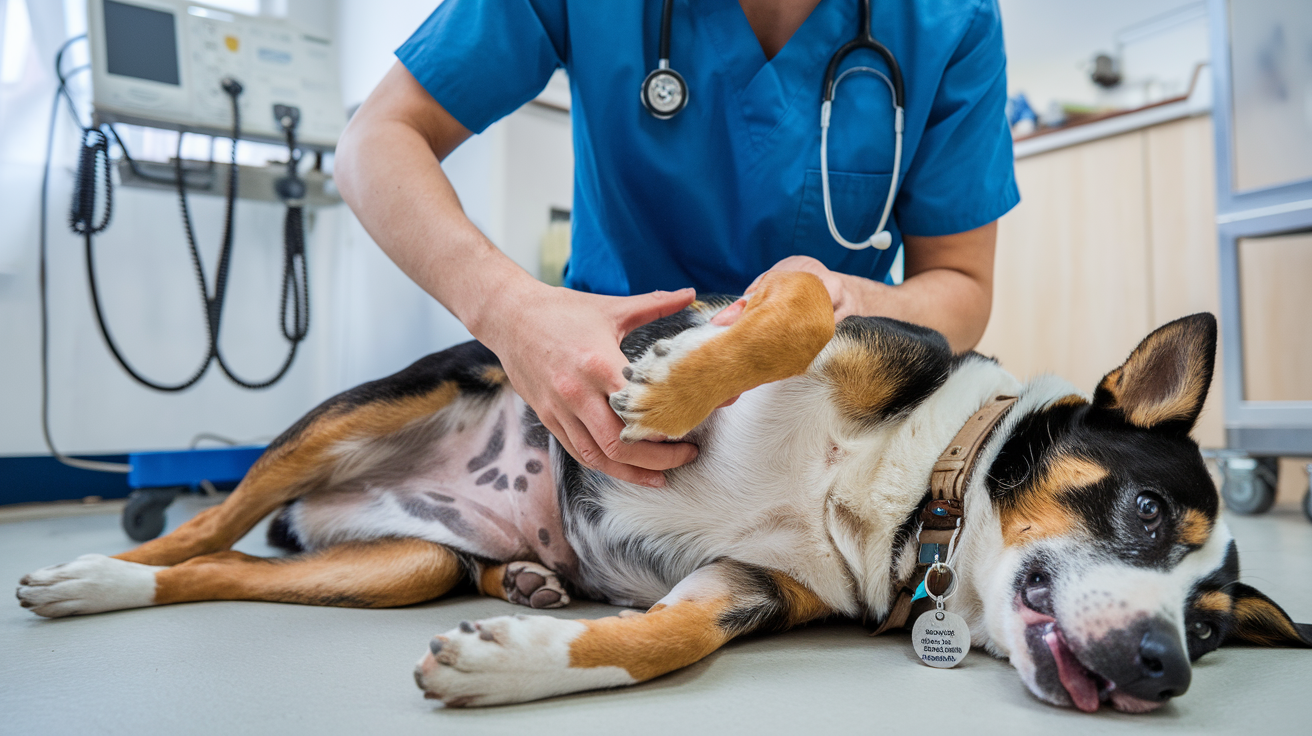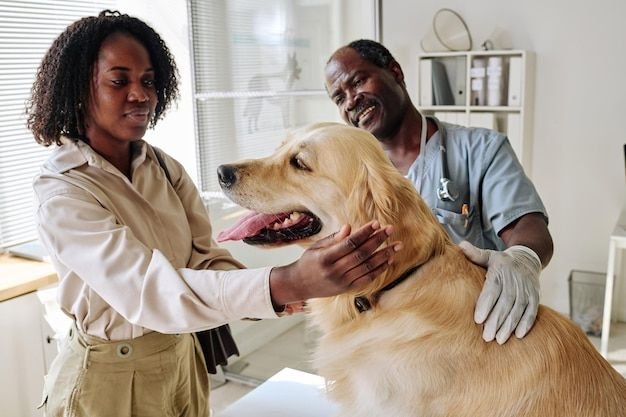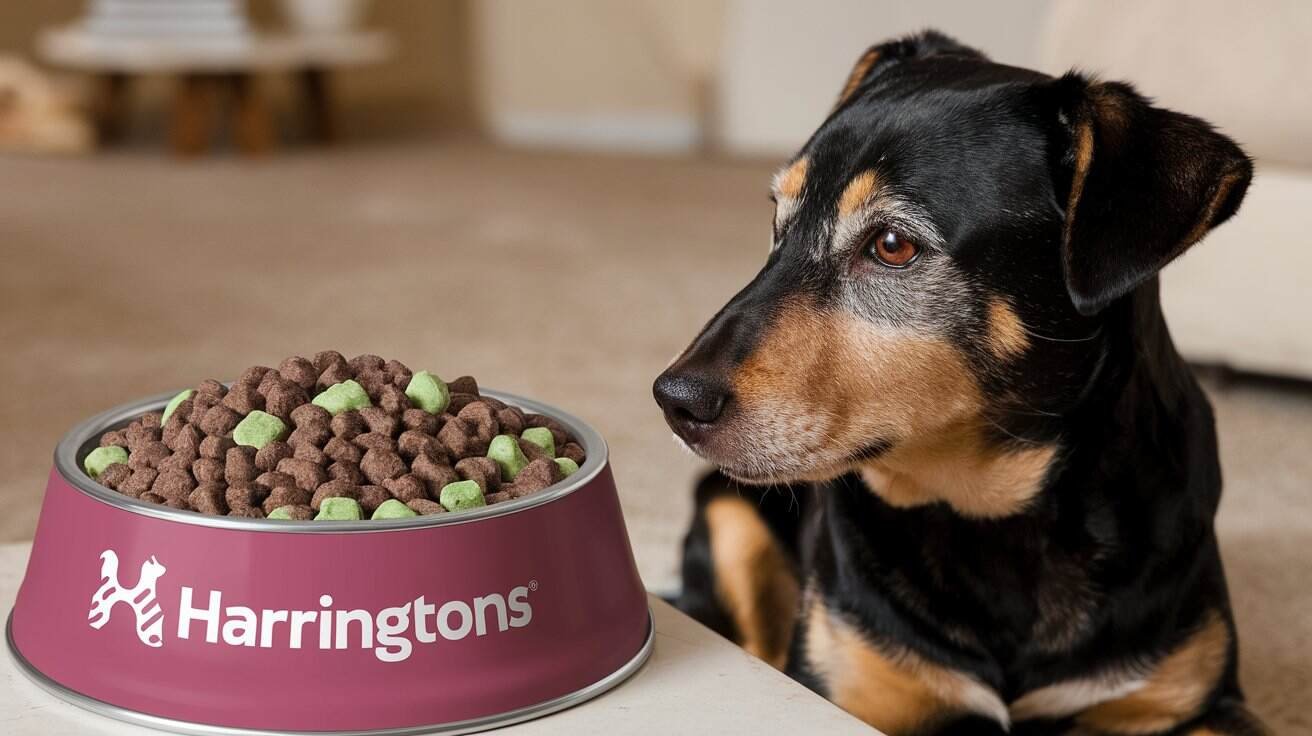Introduction
Did you know that dog gut health is the foundation of their overall well-being? A balanced gut not only supports digestion but also strengthens their immune system, affects their mood, and even keeps their coat shiny and healthy. In this article, we’ll explore what dog gut health means, why it’s important, and how you, as a UK pet owner, can help maintain your dog’s gut health.
What is Gut Health?
Gut health refers to the balance of good bacteria and other microorganisms in the digestive system. These bacteria help break down food, absorb nutrients, and protect against harmful invaders. When the gut is healthy, your dog can properly digest food and absorb essential nutrients. An unhealthy gut, on the other hand, can lead to issues like diarrhea, constipation, bloating, and even mood changes in your dog.
- Anecdote: Sarah, a dog owner from Birmingham, noticed her dog, Max, was often sluggish and had irregular stools. After a few visits to the vet, she learned that his gut health was compromised. With the right diet and supplements, Max was back to his energetic self in just a few weeks.
Why Gut Health is Crucial for Dogs
A healthy gut is at the core of your dog’s physical and mental health. Here are a few key reasons why you should care about it:
- Boosts Immunity: A significant portion of a dog’s immune system is housed in the gut. Healthy gut flora helps your dog fight off infections and allergies.
- Aids Digestion: With a balanced gut, your dog can efficiently digest food, absorb nutrients, and avoid common digestive issues.
- Supports Mental Health: Yes, gut health can affect your dog’s mood! A balanced gut can lead to a happier, less anxious pet.
- Reduces Allergies: Some studies suggest that dogs with healthy gut flora are less likely to develop food allergies or intolerances.
Signs of Poor Gut Health in Dogs
Here are some symptoms that might indicate your dog has an unhealthy gut:
- Frequent diarrhea or constipation
- Bloating or excessive gas
- Low energy levels
- Poor coat condition
- Allergies or skin issues
If you notice any of these signs, it may be time to make some changes to support your dog’s gut health.
Step-by-Step Guide: Improving Your Dog’s Gut Health
Step 1: Evaluate Their Diet
Diet is the first step in supporting your dog’s gut health. Opt for high-quality, easily digestible foods rich in natural ingredients. Look for foods with whole grains, lean proteins, and healthy fats. Avoid processed foods or those with artificial additives, as they can disrupt the gut’s natural balance.
- Pro tip: Switching to a grain-free diet can benefit some dogs with sensitive stomachs. Brands like Royal Canin and Harringtons offer grain-free options for dogs with specific dietary needs.
Step 2: Introduce Probiotics
Probiotics are live bacteria that help restore the gut’s natural flora. Adding probiotic supplements to your dog’s diet can significantly improve their gut health. You can find these in pet stores or ask your vet for recommendations.
- Recommended Products: Popular options in the UK include Protexin Pro-Fibre and YuMOVE Digestive Care. Both of these are designed to support digestion and balance gut bacteria.
Step 3: Use Prebiotics
Prebiotics are fibers that feed the beneficial bacteria in the gut, promoting their growth. Many dog foods already contain prebiotics, but you can also add them in the form of supplements. Prebiotics are particularly helpful for dogs with frequent digestive issues, as they create a healthier environment in the gut.
Step 4: Add Digestive Enzymes
Digestive enzymes help your dog break down food more effectively. They’re especially beneficial for older dogs or those who struggle with digestion. You can find enzyme supplements in pet stores or ask your vet if they recommend adding these to your dog’s diet.
Step 5: Monitor and Adjust
Every dog is unique, so it’s essential to monitor your dog’s reaction to any changes in diet or supplements. Observe their stools, energy levels, and coat condition over a few weeks. If you notice positive changes, you’re on the right track!
Choosing the Best Dog Food for Gut Health
When choosing a dog food specifically for gut health, consider a brand that emphasizes natural ingredients and includes prebiotics and probiotics. Some popular UK brands focused on dog gut health include:
- Lily’s Kitchen – Known for its natural recipes, this brand offers a variety of high-quality options for dogs with sensitive stomachs.
- Forthglade – With grain-free and hypoallergenic recipes, Forthglade’s meals are gentle on the stomach.
- Burns Pet Nutrition – Designed by veterinarians, Burns’ formulas are balanced and packed with nutrients to support gut health.
Final Thoughts: The Power of a Healthy Gut
Keeping your dog’s gut healthy is one of the best things you can do for their long-term well-being. With the right diet, supplements, and a bit of patience, you can help your dog enjoy a happy, healthy life. A balanced gut leads to better digestion, a stronger immune system, and even a calmer, happier dog.
Convincing Point
If you’re ready to make a change, start with a high-quality dog food or a trusted probiotic supplement. Investing in your dog’s gut health now will pay off in the form of fewer vet visits and a happier, healthier pet. Remember, a healthy gut is truly the key to a vibrant life for your dog!



